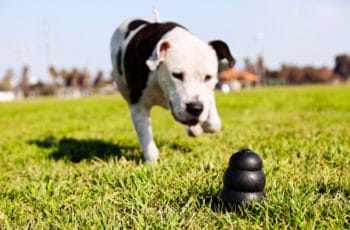For those not too familiar with either breed, boxers and pitbulls might look very similar. Some people might even mistake one for the other. But the fact is that while the two might share some similarities they are two very different breeds of dog, as we are going to take a closer look at here.
What Does a Boxer Look Like?
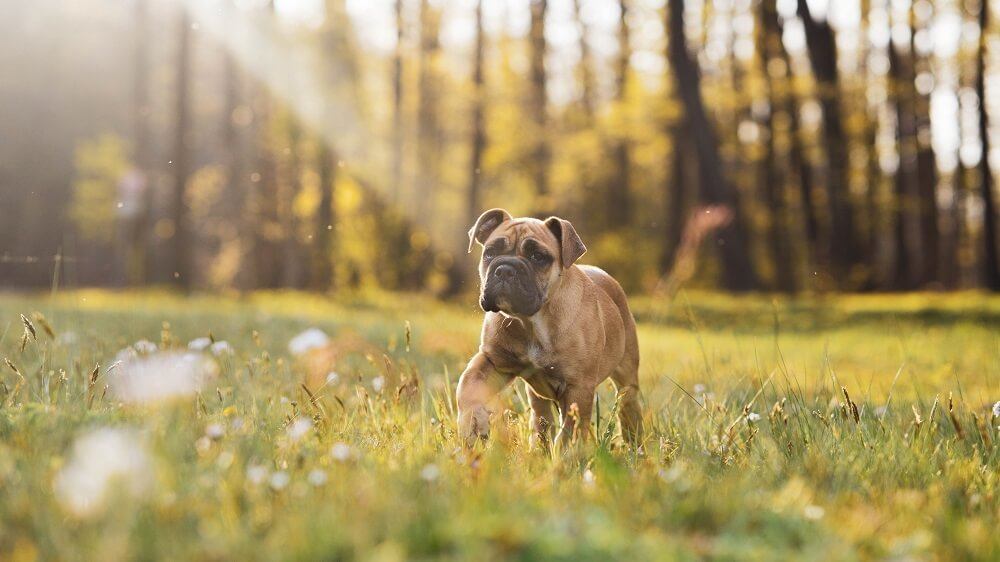
I will have water and a belly rub. / Unsplash
Boxers have a very distinctive appearance. Their muscular build, deep barreled chest and short nosed, jowly face sets them apart, as does their short, smooth and often very shiny coat.
Many purebred boxer dogs have a distinctive ‘star’ marking on their chests and white ‘sock’ markings are also very common. This medium sized pup was bred originally as a guard dog, but given how much the average boxer likes people (more on that later) this is not always a job they are well suited for!
What Does a Pitbull Look Like?
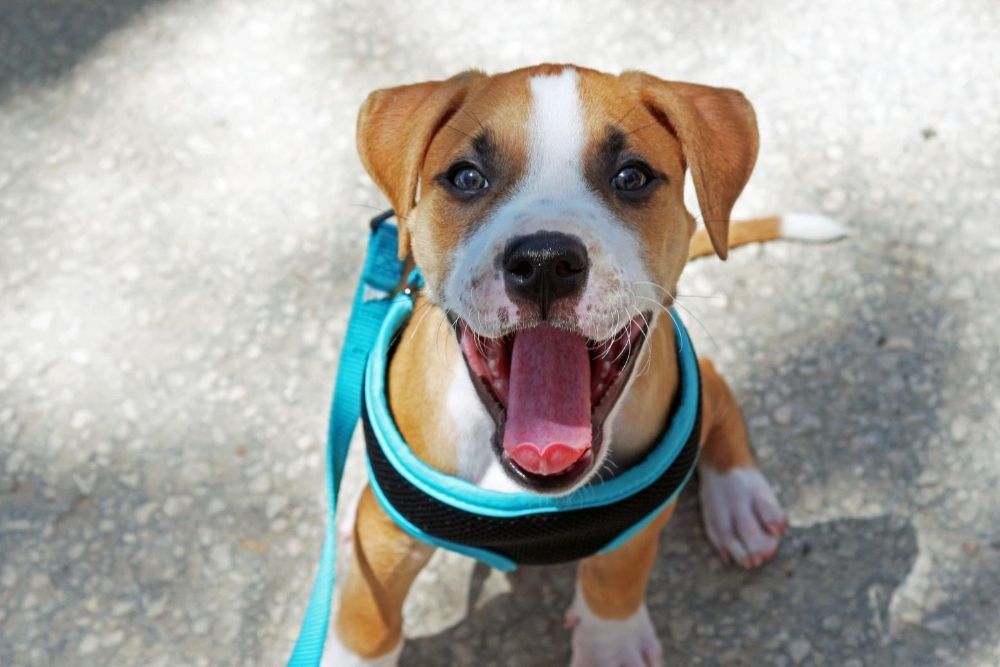
Just waiting on my cookies.
Pitbulls – whose official name is the American Pitbull – are medium sized, stocky dogs whose big circular eyes, rather large, wide nose and beefy neck and chest often make them look fiercer than most of them are.
American Pitbulls were originally bred as working dogs, both as guard dogs and as pit helpers (thus the name) and their sturdy physiques do make them suited to a wide variety of physical tasks.
What is the Difference between Pitbulls and Boxers?
There are all kinds of differences between boxers and pitfalls, but in terms of basic appearance – as in how you might be able to tell them apart at a glance – although both boxers and pit bulls are muscular, there are certain distinctions in their shapes.
Boxers are sleeker and have deeper chests, whereas pit bulls are more stocky and not as ‘tall’ as a boxer dog. Boxers tend to have ‘droopy’ eyes, and larger jowls too.
There are even more differences once you get a closer look, but these are the ones often considered most noticeable.
Pitbulls and Boxers: Basic Stat Matchups
Wondering how Pitbulls and boxers match up when it comes to their vital statistics and general bred characteristics? This charge offers an overview of those ‘stats’ at a glance:
|
Header |
||
|---|---|---|
|
Female:21-24 inches |
18-23 inches (both male and female) |
|
|
Female: 54-64 lbs |
35-65 lbs (can vary greatly in both males and females) |
|
|
Black, white, tan, brown, brindle, blue, red, grey. |
||
|
Smart, very energetic, loving |
||
Boxers Vs. Pitbulls: The Basics Explained
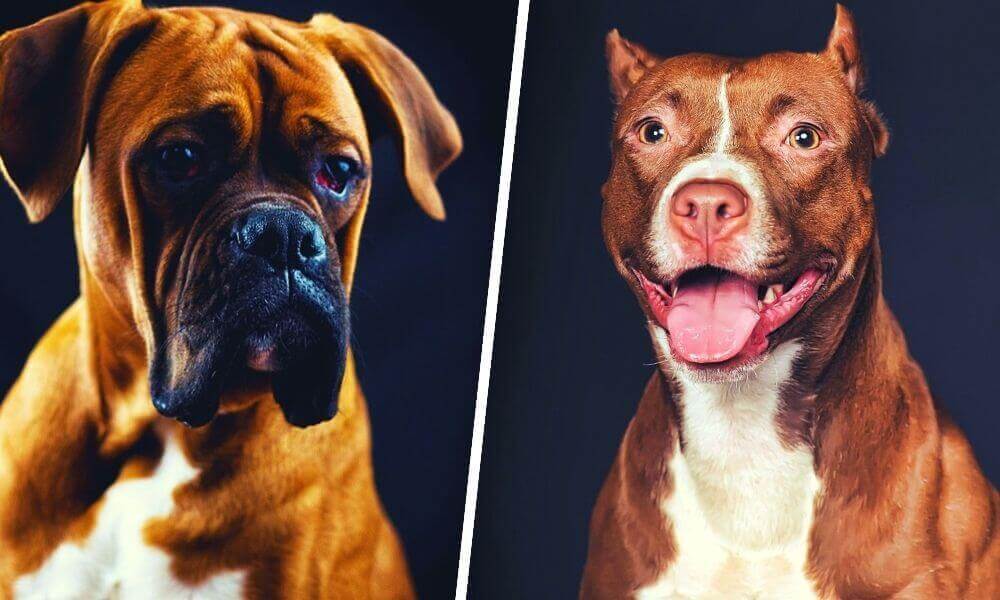
History
As breeds, both the boxer and the Pitbull have fascinating, but different, origins. The boxer is said to have been bred down from a bigger, bulkier German breed known as the Bullenbeisser (“bull biter”) by dog breeders.
The Bullenbeisser was Germany’s leading big-game hunter in medieval times, with noblemen using it to track down all kinds of big prey, including wild boars. But by 1865 German nobility had fallen on hard times, big game hunts became a thing of the past and the bulky Bullenbeisser was out of a job.
The outmoded big-game hunter was given a fresh lease on life through judicious crosses with a shorter, mastiff-type breed from England. By the late 1800s, the modern Boxer had emerged as a sleeker, more elegant dog. The English term Boxer relates to the way the dog spars with its front paws, much like a prizefighter, whether playing or defending itself.
The American Pitbull, as the name suggests, is very much an all-American dog in modern times, but they originated in the UK. Pit Bulls were originally bred from Old English Bulldogs and they were indeed originally used as fighting dogs. They were also popular pups for those looking for ratters (dogs who catch rats) and as guard dogs. They began to develop that bad rap early, as criminals often favored them as their preferred security method.
The American part of the name was added when the Pitbull began to emigrate to the US with its owners just prior to the Civil War. Many became Frontier dogs, performing all kinds of tasks, from rounding up sheep and cattle to helping keep intruders away (of both the human and animal variety).
Temperaments
Boxer dogs are very gregarious, love attention and usually make great family pets, although that will need to be an active family, as boxers have a lot of energy, and without enough exercise and mental stimulation can quickly become destructive out of sheer boredom. They are usually friendly with everyone, one of the reasons that while they are very loyal and protective of their family they may not make fierce guard dogs as they may ask burglars for attention rather than chase them away.
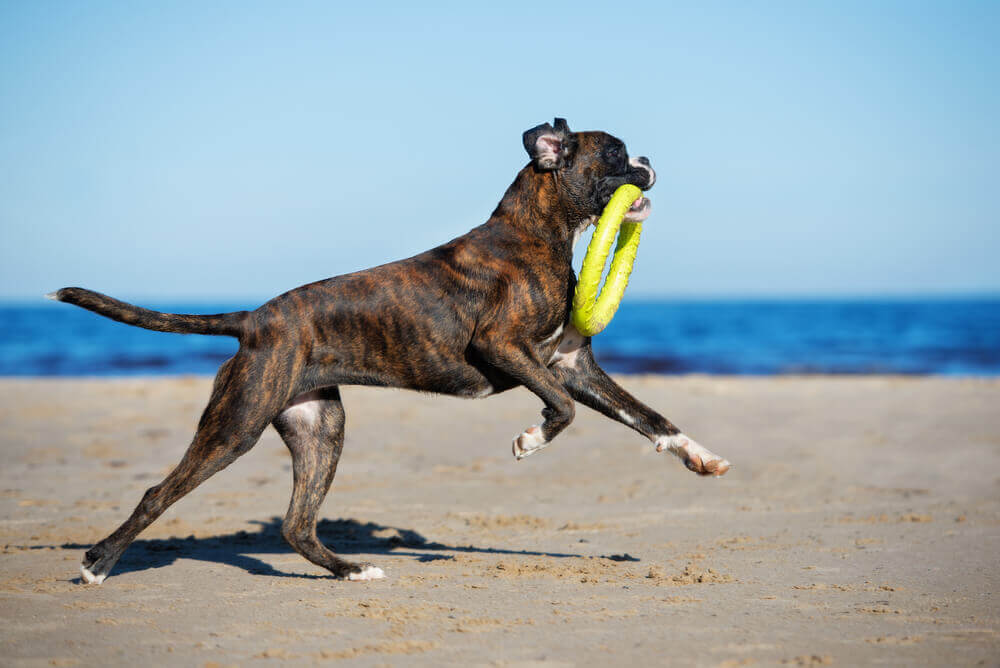
What’s a summer without a tug-toy 🌞.
Pitbulls, unfortunately, get a very bad rap as aggressive dogs. They are not. They only become aggressive when they are trained to be, something that is true of any dog. The fact is that Pitbulls have a similar gregarious and friendly temperament to boxers, although do not seek quite as much attention!
Some wonder if Pitbulls are as smart as boxers. The answer is that both are very smart pups – it takes a lot to sneak something past them and they pick up basic training commands fast. Boxers do tend to be a little more stubborn than their Pitbull cousins though, so sometimes even if they know exactly what they are supposed to do they might ‘choose’ not to if they don’t feel like it.
Cost
If you were to choose to buy a boxer or a Pitbull puppy from a breeder the cost will vary, but could run into the thousands. You should consider however that there are lots of pups in shelters looking for a loving forever home – and that is especially true of pitbulls – and it is almost always better to adopt rather than shop.
If you do choose to purchase a boxer or pitbull puppy from a breeder you should do your homework first. Ensure that the breeder has a verifiable reputation and that any puppy you buy will come with the required health records. You should also make sure the pup is real before parting with any cash, as scams involving the sale of purebred puppies that do not even really exist – especially boxers – have become common on sites like Facebook and Craigslist.
Grooming
Both the boxer and the Pitbull have short, slightly wiry coats that require only occasional grooming. They also don’t shed a lot, and regular brushing should loosen and remove any stray hairs before they end up on your couch or clothes!
Average Lifespan
On average boxer dogs are said to live 10-12 years, while a Pitbull averages a little longer, 12-14 years. These are however just averages. With good care and attention many pups from both breeds live much longer.
Trainability
As both are very smart dogs, boxers and Pitbulls are very trainable, but you will need to put in some work, especially with boxers, who are easily distracted by exciting new people (or pets) and can also, as previously noted, be very stubborn at times.
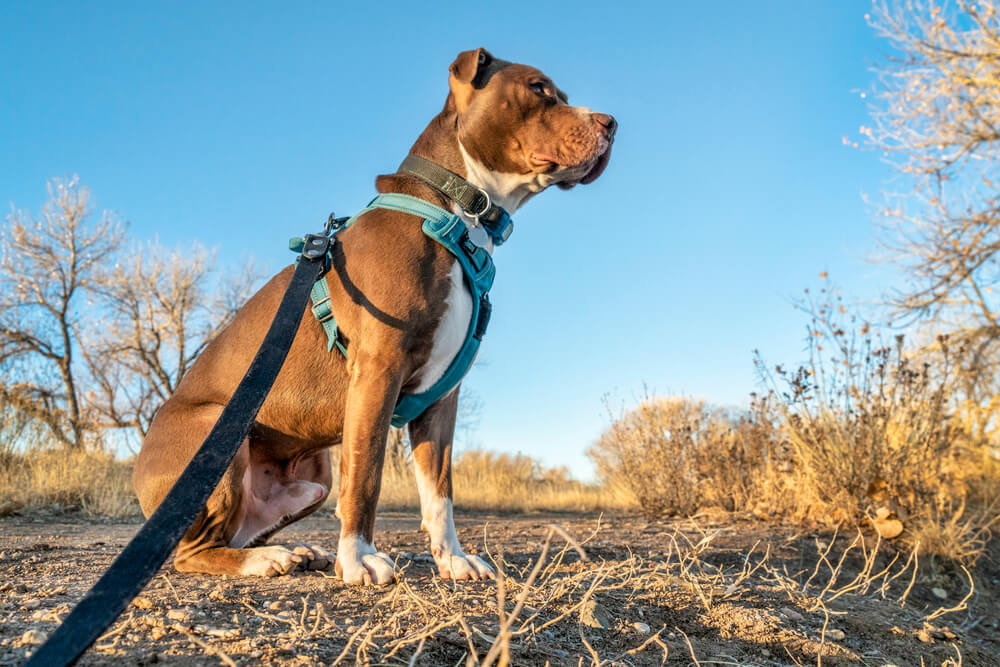
This is not a popularity contest (but if it were, I’d be winning).
Barking
Neither boxers or Pitbulls are ‘happy’ dogs and will usually only bark if they are doing so to ward off what they perceive to be danger to themselves or their ‘pack’, which includes their human family.
Exercise Needs
Both breeds need plenty of exercise, both as puppies and adults. Not only will this prevent weight problems but it will ‘burn off’ the large amounts of energy they have (especially boxer dogs who often seem to have boundless energy!).
Behavior with Small Children and Other Pets
Whatever their reputation, pit bulls are excellent with kids and most tolerate other pets in the home fairly well too. Boxers are good around small children too, but, as we’ve mentioned, are often very bouncy and energetic, and may knock very small kids over in their excitement. When it comes to other animals a boxer can live with others but make sure they get plenty of attention, or they may become troublesomely jealous of any attention other pets get.
Health Problems
Boxers are susceptible to a variety of illnesses, including heart and thyroid problems, cancer, hip dysplasia, arthritis, and deafness in white boxers. Pit bulls are generally healthy dogs, however they are susceptible to hip dysplasia, grass allergies, cataracts, and heart problems. Again however these are generalizations and not guarantees that your pup will become ill.
Food & Diet
Neither a boxer or a Pitbull needs a special diet as a general rule, and they should do well with any high quality dog food. Older boxers can be prone to obesity though, so you should always make the switch to a senior diet when the time comes.
Should I get a Boxer Dog?
Boxers are great family dogs, if they get lots of exercise and attention. They might also be a little too boisterous around small children. However, if you are looking for a very loving, loyal pup who also likes to be a bit of a social butterfly, then a boxer dog might be for you.
Should I Get a Pitbull?
Despite their very much unwarranted bad reputation Pitbulls can make loyal, loving pets that are great with even small kids. There is one unfortunate disclaimer about them: some insurance companies, landlords and even local municipalities still have outdated, unfair pit bull bans in place, so you will need to check for those in your living situation first.


